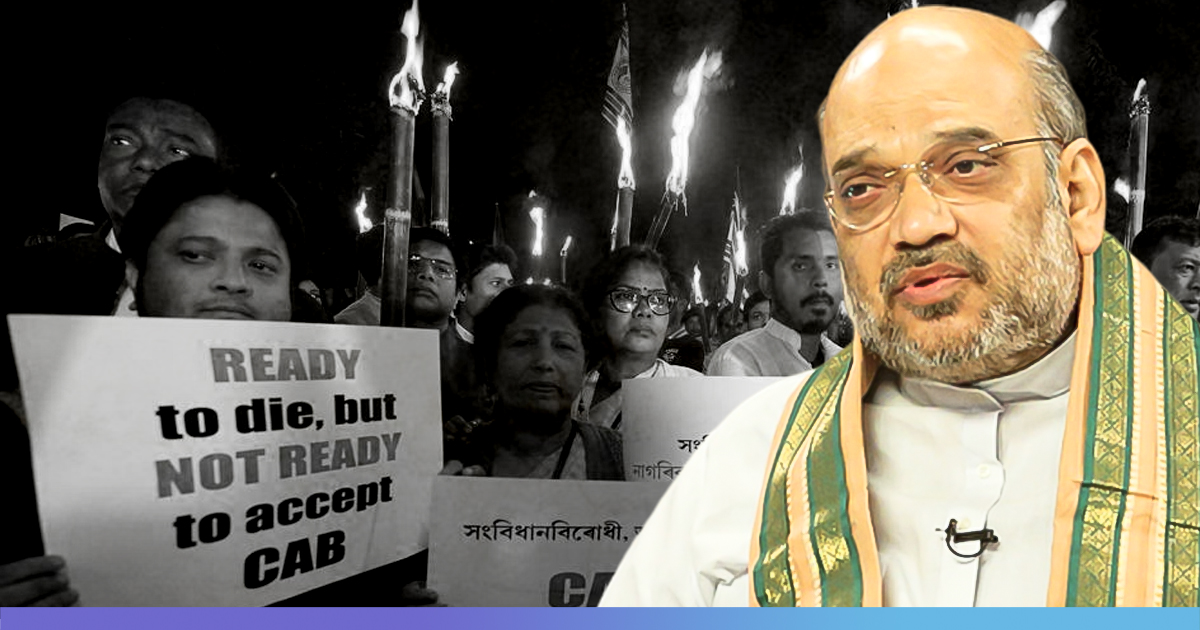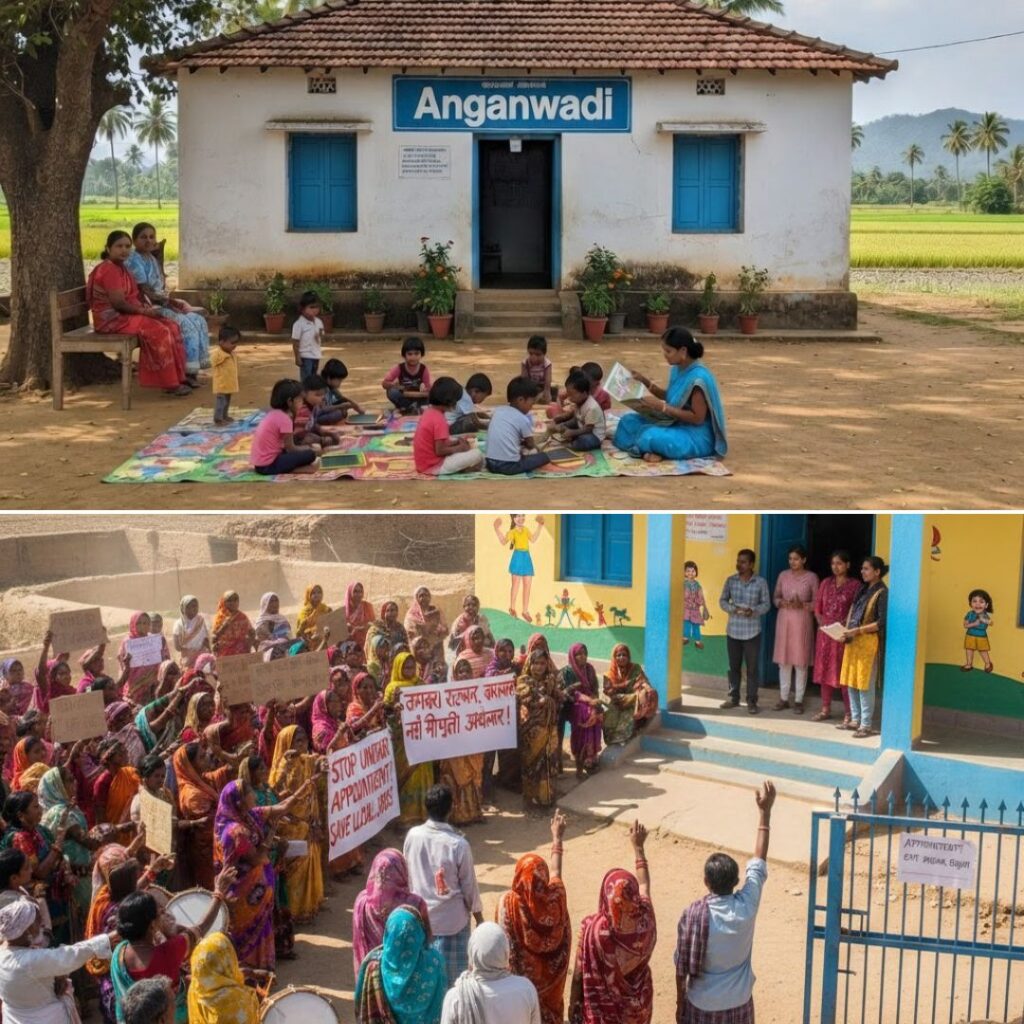The Citizenship Amendment Bill 2019 changed certain provisions of the Citizenship Act 1955 which was passed five years after India became a Republic with its own Constitution.
Under the leadership of Dr B R Ambedkar: C Rajagopalachari, Rajendra Prasad, Jawaharlal Nehru, Vallabhai Patel, Maneklal Munshi, Abul Kalam Azad, Vasudev Malavankar, S P Mukherjee, and Balwantrai Mehta brought the Indian Constitution alive – a draft that would make the microcosm of the world, its largest democracy.
The constitution declares India a sovereign, socialist, secular, democratic republic, assuring its citizens justice, equality and liberty, and endeavours to promote fraternity.
However, on the night of 11th December, the upper house of the Parliament passed the contentious Citizenship Amendment Bill that is set to institute the provision for a blanket acceptance of Pakistani, Bangladeshi, and Afghan religious minorities as Indian citizens.
During the intense and lengthy debate around the bill, in both houses, Union Home Minister Amit Shah made several statements that can be deemed misleading. Nevertheless, his speech justifying the amendment garnered the support the government had hoped for and gave it the necessary numbers to push the bill to the President’s table.
The Logical Indian decided to evaluate some of his statements that raise doubts and may mislead a common person’s interpretation of the new law.
“This bill is for those lakhs and crores of people who are living their lives in hell.”
The Union Home Minister kept referring to the unsubstantiated number of ‘lakhs and crores’. This, he said was a legitimate number as his research told him that apart from the Intelligence Bureau’s (IB) number of 31,313 refugees (from Pakistan, Afghanistan, and Bangladesh) in India, there were more residing hiding their real ethnicity over fear of societal ostracism.
He claimed in the Parliament that these people will reveal their previous nationality as soon as the bill becomes a law, making the number of refugees rise to ‘lakhs and crores’.

It was believed by several circles of the media and society that the new act will legalise the residency of migrants who have entered India on or before 31st December 2014. Amit Shah’s claim was that the number of such migrants was in lakhs and crores.
But, the highlighted portion in the law, that is included with an ‘and’ clause makes a reference to the Passport Act of 1920.

This will allow the government to exempt anyone from the conditions of the Citizenship Act, therefore may also disregard the cut off of 31st December 2014.
The intermingling of the two (Citizenship Amendment Act and Passport Act) makes a blanket provision for anyone, that the government deems worthy, to be an Indian citizen.
And, as underlined by the present dispensation, only Hindus, Jains, Buddhists, Sikhs, Parsis, and Christians from Pakistan, Afghanistan and Bangladesh are entitled to benefit from it.
So even if the current number of refugees is 31,313 – as reported by IB, it could very well swell to lakhs and crores by the way of clause (3), of sub-section (2) of section 3, of the Passports Act.
“Article 14 is not violated as there is reasonable classification”
Article 14 of the Indian Constitution is a fundamental right and it also grants every one on Indian soil – regardless of nationality – equality before the law and hence there can be no discrimination on the basis of religion.

However, the Union Home Minister claimed time and again that the proposed legislation would not violate the mentioned article as it has been drafted with ‘reasonable classification’.
The reasonable classification here distinguishes select non-Muslim religious communities from India’s neighbouring Islamic countries as ‘persecuted minorities’. It excludes the Ahmadiyya sect (which is officially a religious minority in Pakistan) and atheists in Bangladesh who have a well-documented history of discrimination and social repudiation. This has raised several questions on the selective nature with which ‘persecuted minorities’ have been defined.
Also, the premise of the ‘reasonable classification’ is quite shaky. The government declared that non-Muslims in Pakistan have faced systemic persecution, but Amit Shah did not cite any source for the claim.
When India stood undivided in 1941, census data showed that the non-Muslim share in the population of the region of West and East (now Bangladesh) Pakistan was 14% (Amit Shah claimed it was 23%).
During the Partition, most non-Muslim families left their ancestral homes and fled to present-day India fearing religious persecution in 1947. Due to the mass migration that ensued on both sides, a considerable chunk of India’s Muslim population traveled to settle in the new Islamic country and a large numbers displaced from Pakistan came to the secular nation of India.
This caused the per cent of non-Muslims in Pakistan to drop to 3.44% in 1951 (post Partition), and the figure has hovered around the 3 per cent mark ever since.
But, in what might be called good news, the non-Muslim population in the country, as per its latest available report, shows that their population has shown a slow yet steady increase. They can be estimated to be 3.73% of the total population.
Although there is widespread injustice, discrimination and societal prejudice against the minorities in Pakistan, there is no solid proof of their persistent and systemic ‘persecution’.
This draws a shadow of doubt of the government’s ‘reasonable classification’ thus further substantiating the notion that the bill (now law) violates Article 14.
“Articles 29 and 30 violate Article 14”
Articles 29 and 30 were brought into the Constitution to empower minority groups – linguistic, ethnic and religious.
They protect the culture of a minority group within the realm of the Constitution and to say that they discriminate against the majority is upper-caste privileged speak.


These articles don’t emasculate the socially privileged majority but allow for promoting the minorities’ education and development.
“Ugandans were granted Indian citizenship but others were ignored”
The grounds on which people from Uganda were given citizenship was not prejudiced and the people were offered the same amidst a prominent humanitarian crisis that was acknowledged, well-documented, and witnessed by the world.
“Rohingya will never be accepted as they come through Bangladesh”
Rohingyas have for long been considered the world’s most persecuted group. They have been displaced, banished from their lands and their exclusion from the Citizenship Amendment Bill did raise tempers as it simultaneously gave undue preference to other communities.
Amit Shah claimed with fervour that Rohingya Muslims will never be allowed refuge in India as they infiltrate the border through Bangladesh. Even though the hypothetical generalisation of Rohingyas’ infiltration style does not dilute the horrific reality of their lives, it needs to be known that they also try to enter India through the Northeast.
India shares a long border with Myanmar and native Rohingyas have been entering Indian territory through the shared border for quite some time.

“Myanmar is a secular country”
The concept and practice of secularism separates the state (government) and religion, while giving equal recognition and respect to all faiths practised in the country.
The Constitution of Myanmar does not view all religions equally, unlike India, and reserves a special spot for Buddhism.

“This is a straightforward legislation and the ones opposing are worried about losing their votes banks
While attacking the Opposition with yet another unsubstantiated claim, Amit Shah said that the proposed law scared those politicians who had shielded illegal immigrants for votes.
However, TheWire reported that the Rashtriya Swayamsevak Sangh (RSS) has estimated the growth of their vote bank by an additional 1.5 crore people after the passage of Citizenship Amendment Bill. In their view, this will help their political arm, the Bharatiya Janata Party (BJP).
Regardless of the factual gaps, the bill obtained the Indian President’s assent on 12th December and is now a law.
But, its implementation plan is unclear, bringing several loopholes to the fore.
Mahua Moitra, Asaduddin Owaisi, Jairam Ramesh, and Indian Union Muslim League (IULM) have reached out to the Supreme Court to hear on the constitutional validity of the Citizenship Amendment Act but whether the executive’s arguments, if similar in nature, will stand in the court of law is the crux of the matter.












